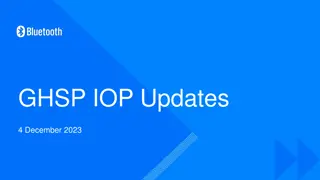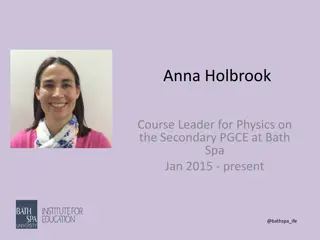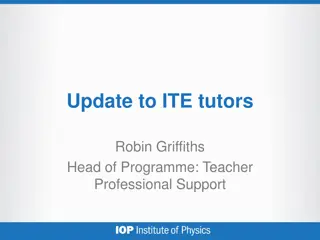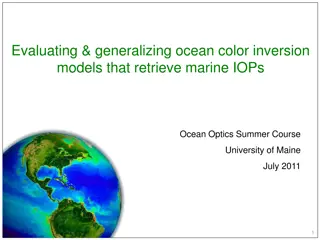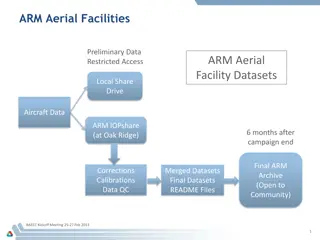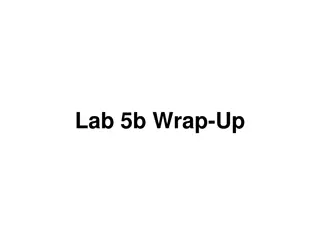GHSP IOP & ESLP Progress Updates - December 2023
This update provides details on GHSP IOP and ESLP progress as of December 4, 2023. It includes information on remaining test cases, passes logged, mandatory test cases, and more. The document covers test purposes, test case identifiers, passes remaining, and specific test procedures related to healt
0 views • 6 slides
Exploring Teacher Recruitment and Retention in Physics and Chemistry Education
Anna Holbrook, a Course Leader for Physics on the Secondary PGCE at Bath Spa University, is conducting research on teacher recruitment and retention in physics and chemistry education. The project aims to understand the impact of IOP/RSC scholarships and SKE courses on novice teachers' early careers
0 views • 12 slides
Empowering Physics Teachers: Innovations in Professional Development
Discover the latest updates and initiatives in physics teacher training and support programs led by Robin Griffiths and the Institute of Physics (IOP). From stimulating physics networks to nurturing future physics leaders, these projects aim to enhance teaching practices, support disadvantaged stude
7 views • 11 slides
Evaluation of Ocean Color Inversion Models for Retrieving Marine IOPs
Evaluating and generalizing ocean color inversion models to retrieve marine inherent optical properties (IOPs) is essential for understanding ocean dynamics. This involves choosing the right algorithm and validating its effectiveness, as discussed in the Ocean Optics Summer Course at the University
0 views • 23 slides
ARM Aerial Facilities Data Management Instructions
ARM provides comprehensive guidelines for managing and sharing aerial facility data, including data collection, processing, and accessibility for the scientific community. The process involves automatic collection, processing, and ingest of data to meet ARM-approved standards, with options for data
0 views • 6 slides
HydroLight Simulations and Exercises Overview
Explore the HydroLight simulation tools and guided exercises from labs 6 to 5, covering topics such as optical depth, Rrs dependence on backscatter, and comparisons of IOP water cases. Dive into the simulations for a comprehensive understanding of light fields and aquatic environments.
0 views • 18 slides
